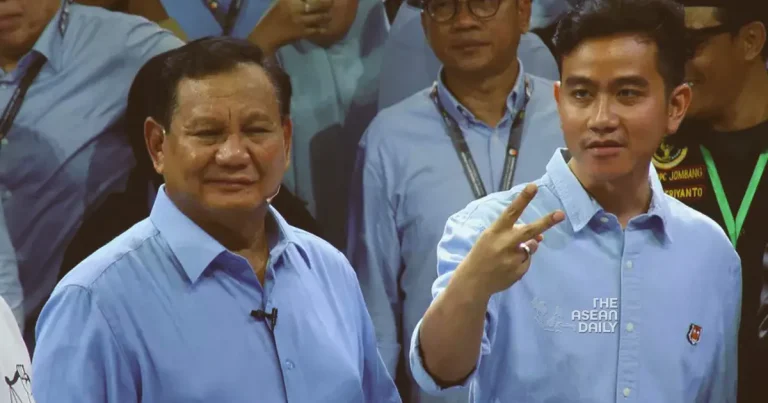Indonesia’s political landscape is ablaze as the country braces itself for the upcoming presidential election. In the midst of the fervor, one candidate stands out as the frontrunner – Prabowo Subianto, the current Defense Minister. However, recent debates have exposed vulnerabilities in his campaign, leaving many questioning his ability to secure victory. Despite these setbacks, Prabowo’s chances of winning the election should not be dismissed.
During a televised debate focused on defense and international affairs, Prabowo faced intense scrutiny from his opponents, particularly Anies Baswedan. Anies strategically targeted Prabowo’s temperament, aiming to portray him as lacking the composure and level-headedness required for effective leadership. As the defense minister, Prabowo was expected to dominate this domain, but his quick temper became a focal point of contention.

Anies, the former Jakarta governor, seized the opportunity to criticize Prabowo’s track record in the Cabinet. He highlighted the failure of the defense ministry to protect its website from a cyber attack in 2023, emphasizing the irony of a well-funded institution falling short in cybersecurity measures. Anies also questioned the decision to purchase used primary weaponry hardware and the lack of adequate housing for military personnel.
Joined by Ganjar Pranowo, the former Central Java governor, Anies further scrutinized Prabowo’s plan to acquire Mirage jet fighters from Qatar. Ganjar echoed concerns about the training required for air force personnel and emphasized the need for investment in naval capacity to fortify Indonesia’s archipelagic defense. He proposed increasing the defense budget to 2% of Indonesia’s GDP, enabling the development of domestic defense industries and technological advancements.
In the realm of foreign affairs, the South China Sea dispute emerged as a critical topic. Anies advocated for a collective mechanism approach with ASEAN, emphasizing the role of the president as a diplomatic commander. Ganjar highlighted the challenges of reaching a consensus within ASEAN and the prolonged negotiations over a code of conduct for the South China Sea. Prabowo, on the other hand, emphasized the need to strengthen Indonesia’s military capability to address the North Natuna Sea issue and ensure the welfare of soldiers.
While the debate revealed the candidates’ differing approaches and perspectives, it also exposed the limitations of political posturing and vague commitments. The costings and detailed plans were often lacking, leaving room for skepticism. However, the candidates’ positions on critical issues shed light on their priorities and potential paths of action.
Despite Prabowo’s faltering performance in the debate, it would be premature to dismiss his chances of winning the election. His strong position as the current Defense Minister and his previous experiences as a presidential candidate lend him credibility and a dedicated support base. Moreover, debates are only one aspect of a comprehensive campaign, and Prabowo has ample time to regroup, refine his strategies, and address the concerns raised.
As the election day approaches, it is essential to closely monitor how the candidates adapt and respond to the challenges they face. Prabowo’s ability to overcome the vulnerabilities exposed during the debate will be crucial in determining his electoral success. The Indonesian people are eagerly awaiting a leader who can navigate the country through its complex socio-political landscape and drive progress and stability.
In this highly competitive presidential race, Prabowo Subianto’s journey towards victory may encounter obstacles, but his potential to emerge as Indonesia’s next president should not be underestimated.




